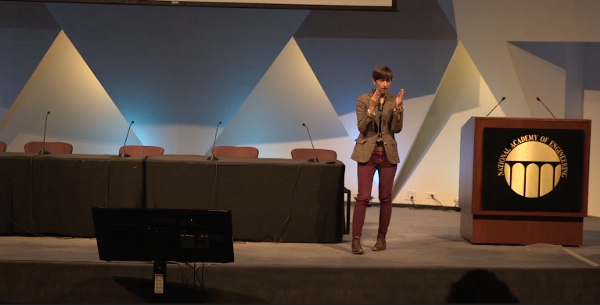Danielle Bassett: Emerging Technologies for the Control of Human Brain Dynamics

As the leading international professional organization for those in engineering, computer and technology fields, IEEE has an ongoing program to explore the ethical and social implications of the innovations its members produce. New developments give individuals, groups and governments new abilities, and thus raise questions and potential problems that have never been encountered before.
Last month, Danielle Bassett gave a keynote address at the annual IEEE TechEthics Conference, outlining some of the questions that arise at the frontier of network science and neuroscience.
Bassett, Eduardo D. Glandt Faculty Fellow and Associate Professor in the Department of Bioengineering, has published extensively on how engineering principles can inform the way the structure of neuronal connections give rise to cognitive traits. Alongside psychologists, ethicists and philosophers, she has argued that this approach can provide safeguards on increasingly powerful treatments for mental illnesses and neurological disorders.
In her talk, Bassett explains what Facebook and the brain have in common, and how the network science behind both “motivates the question of ‘what is human thought’ and the relationship between human thought and mathematics.”
“The network inside of your head matters to how you function cognitively,” Bassett said. “Now the question is, does that help us understand how we could intervene to make cognitive function better in someone whose function is altered?”
See the whole talk at IEEE TV.
